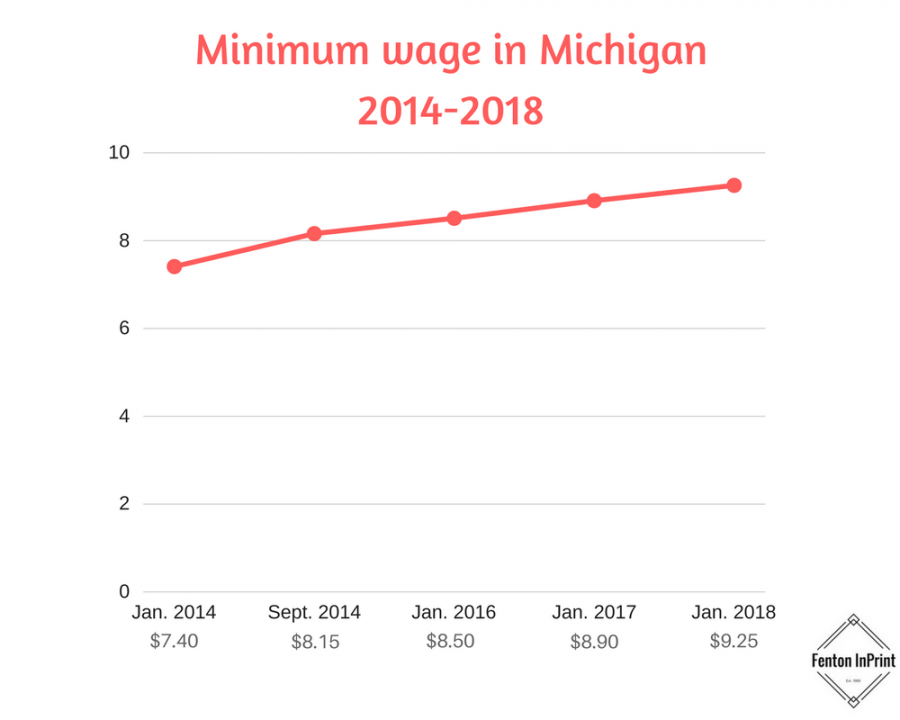Overtime is usually required at time and one-half the regular rate of pay for hours worked in excess of 40 in a week. There is a provision in the overtime regulations that "exempts" employees whose primary duty is administrative, executive, or professional work from overtime requirements. One of the requirements for each of these exemptions is that the employees are paid on a salary basis.
Employees must meet the definitions in the law in order to be classified as exempt. For more information on these definitions, see "Wisconsin Hours of Work and Overtime Law," part of the Labor Standards Information Series. A private sector employer cannot give comp time to its nonexempt employees instead of paying time and one-half overtime pay based on an employee's regular rate of pay. Merely being paid a salary in itself does not exempt an employee from the minimum wage and/or overtime pay requirements.
To make this determination, please review Code of Federal Regulation 541, which covers exemptions for executive (supervisors/managers), administrative, professional and outside sales employees. Additionally, employees who are paid on a salary basis are still likely to be eligible to receive overtime pay. In order to avoid paying salaried employees overtime, the employer has the burden of proving that an exemption applies. However, many employers misclassify their employees as exempt from the overtime provisions of the FLSA and the NYLL in order to save money on labor costs. A salaried employee gets paid a set amount based on an annual salary they agreed upon with the employer. The employee's pay is based on a 40-hour workweek; however, they may work more or less than 40 hours in a given week and still earn the same.
For this reason, salaried workers not eligible for overtime pay. You may have a weekly, biweekly, semimonthly or monthly pay schedule for them. As mentioned above, to be an exempt salaried employee, the law states your equivalent hourly wage must be above the federal minimum wage. And while there are hourly employees working in specialized fields who receive high hourly pay, you will often find higher paying jobs are salaried. Finally, the Department of Labor recently issued a provision increasing the salary requirement necessary to be eligible to receive overtime pay when working over 40 hours per week.
It has increased from an annual salary of $23,660 to $35,308. This could affect over a million workers by becoming entitled to receive overtime pay when working over 40 hours in a work week regardless of being a salaried employee. This area of law is very detail oriented and is evaluated on a case-by-case basis; therefore, if you are not being compensated for overtime you should consult an experienced employment attorney.
40 Hours A Week Salary Calculator Currently the minimum wage in North Carolina is $7.25 an hour. The minimum wage and overtime pay are based on the hours worked each workweek and not by the number of hours worked each day or the number of days worked. Each workweek stands on its own regardless of the length of the pay periods. An employer covered by Fair Labor Standards Act ("FLSA") and the New York Labor Law ("NYLL") must pay their eligible employees overtime pay. One of the factors that determine overtime eligibility is how the employee is paid. Employers may pay an employee an hourly rate, an annual salary, or some other agreed upon method (e.g., piecemeal, day rate).
Regardless of the method of pay, the majority of employees are eligible for overtime pay in the amount of one and one-half times their regular hourly rate for all the hours worked over 40 in a workweek. In Washington, employees must satisfy certain salary and duties tests to be classified as exempt from overtime under state law. In 2022, employees in Washington must earn a salary of at least 1.75 times the minimum wage for a 40-hour workweek to qualify for exemption. The state's minimum wage is scheduled to increase on January 1, 2022. As a result, the minimum salary required for the executive, administrative, and professional exemptions from overtime under state law increases to $1,014.30 per week on January 1, 2022.
In most situations salaried workers in the U.S. are classed as exempt employees and aren't entitled to overtime pay. As we saw with salary employee vs. hourly employee laws, there is minimum wage for salaried employees that is much higher than the federal minimum wage. While federal minimum wage is only $7.25 per hour, the $684 per week that mandates a salaried position breaks down to an hourly rate of $17.10 per hour when factoring in a 40-hour work week.
Many salaried employees are non-exempt and entitled to overtime pay. Per federal law, businesses have to pay hourly employees overtime for hours worked in excess of 40 hours per week. They can still require salaried employees to work as long as it takes to get the job done.
There's no additional compensation for additional hours, so a demanding boss could easily keep you at work with additional tasks. In the U.S., according to the payment rules regulated by the Fair Labour Standards, salary workers are not covered by overtime . It is worth mentioning, that in many countries companies offer their workers various kind of compensations for overtime hours. That might be just additional money, time off adequate to the number of overtime hours, or other benefits. When a salaried employee is classified as non-exempt under Fair Labour Standards, an employer has to pay one and a half for each extra hour over standard 40 per week.
To avoid misunderstandings, clear all your doubts in your state's Department of Labour or your country's labour law. Salary to hourly wage calculator lets you see how much you earn over different periods. It is a flexible tool that allows you to convert your annual remuneration to an hourly paycheck, recalculate monthly wage to hourly rate, weekly rate to a yearly wage, etc.
This salary converter does it all very quickly and easily, saving you time and effort. In the article below, you can find information about salary ranges, a closer look at hourly and annual types of employment, as well as the pros and cons for each of these. Moreover, you can find a step-by-step explanation of how to use this paycheck calculator down below. The Department of Labor requires employers to pay overtime to non-exempt salaried employees at least 1.5 times their regular hourly rate for all hours worked over the 40 hours during a workweek. Your company is required to pay employees the correct amount of money for each pay.
Both federal and state laws set these requirements, including, for example, minimum wage rates. In another example, if you pay an employee a salary when this employee should be paid an hourly rate, you may not be paying overtime as required by federal and state regulations. Some employers, in attempting to avoid paying overtime, make the decision to pay a salary to workers who do not fit the definition of Executive,Administrative or Professional. This practice does not eliminate the obligation of an employer to pay overtime based on a mathematical calculation of the employee's average hourly wage to employees who are otherwise eligible.
The update to the regulation will be used to determine whether white-collar, salaried employees are exempt from the federal Fair Labor Standards Act's minimum wage and overtime pay protections. They are exempt if they are employed in a bona fide executive, administrative, or professional capacity, as defined in the Department of Labor's regulations at 29 CFR part 541. This exemption from the FLSA is referred to as the "white-collar" or "EAP" exemption. Normally, if you are an exempt, salaried employee, you do not qualify for overtime pay if you work more than 40 hours a week.
But the fact that you are paid a salary is not, by itself, enough to exempt you from the federal law's minimum wage and overtime requirements. How often you get paid when you earn a salary depends on your agreement with your employer. It is more common for salaried employees to receive paychecks bi-weekly or monthly, whereas most hourly employees receive weekly paychecks, but this all depends on the company you work for. The key difference between salaried and hourly employees is exactly what it sounds like – how they are compensated for their work. Hourly waged employees receive payment for each hour they work and have the right to receive overtime pay if they work over their allotted 40-hour workweek.
Salaried employees are generally not eligible for overtime pay but receive a steady paycheck with the same amount each week. Salary employee laws vs. hourly employee laws break down into vastly different minimum wages. If you consider the $684 minimum for an exempt employee into a 40-hour work week, their minimum wage breaks down to $17.10. An hourly wage for a minimum wage worker can widely vary state-to-state due .
But if you're working at the federal minimum wage of $7.25 per hour, salary vs. hourly isn't much of a debate. Hourly workers do not usually receive compensation in the form of paid leave by the companies who hire them and may be responsible for their own healthcare. On the other hand, hourly employees enjoy more autonomy and may be able to set their own hours. The income of an hourly employee might be more vulnerable to changes.
Hourly positions typically feel the impact of a poor economy or economic downtown in their industry first. Many businesses choose to reduce the hours for hourly employees instead of laying off salaried employees. For example, someone getting hourly pay who usually works 40 hours per week could lose 25% of their normal wage if their boss decides to schedule them for 30 hours during weeks that aren't busy. Salaried employees receive a set amount of money that is calculated on an annual basis. The compensation can't be under the federal minimum wage set by the Fair Labor Standards Act.
The pay period can be monthly, weekly, biweekly, or have any other frequency set by the contractor and the employee. Overtime must be paid at time and one-half the regular rate of pay. The "regular rate" is an hourly rate that will change for a salaried employee based upon the number of hours worked in a week. Since salary constitutes wages at straight time for all hours worked, the employer owes an additional half time for the hours in excess of 40 in a week. This depends upon the wage agreement between the employer and the employee. If the employee were exempt as an executive, administrative employee, or professional, generally no additional pay would be owed unless there is some agreement for additional pay.
For non-exempt salaried employees, the employer must pay overtime if the employee works more than 40 hours in a week. The employer may have to pay additional amounts if it is specified in the agreement that the salary is meant to compensate for up to 45 hours. Contact the Equal Rights Division for additional information regarding this type of situation.
For example, if a salaried employee earns a salary of $50,000 that is paid weekly, each paycheck would be $961.54 before deductions. If the employee is exempt from overtime pay, that amount won't change, regardless of how many hours per week are worked. If you are paid on a salary basis but do not have the job duties listed under one of these exemptions, you are likely a non-exempt salaried employee and entitled to overtime pay.
Contact an overtime law attorney today and get the legal help you deserve. A nonexempt employee is entitled to at least minimum wage for up to 40 hours in a workweek. If a state, city, or county has a higher minimum wage rate than the federal rate, then employers are required to pay the higher amount. Also, they are non-exempt employees, which means that, next to earning the federal minimum wage, they're entitled to overtime pay.
The state's minimum wage is scheduled to increase on January 1, 2022 and varies based on employer size. As a result, employers with 26 or more employees must pay a salary of at least $1,200 per week beginning January 1, 2022 to qualify for the exemption. Employers with fewer than 26 employees must pay a salary of at least $1,120 in 2022 to qualify for the exemption.
Under the FLSA, hourly-paid workers are usually classed as non-exempt employees and are entitled to overtime pay—at a rate of at least time and a half—for anything over the standard 40-hour work week. Depending on the state you operate in, hourly employees are typically required to be paid time and a half for any time they work beyond 40 hours in a week. You can pay hourly workers at the same frequency you pay salaried workers, but their paychecks will fluctuate based on the exact number of hours they work. Most employers take advantage of their employees' ignorance regarding California labor laws toforce working overtimeand claim that they are exempt because they receive a salary rather than an hourly wage.
If this is your case, your employer may owe you compensation for unpaid overtime and an hour's pay for each meal you were denied. Most jobs in the United States are governed by the Fair Labor Standards Act and are categorized as either exempt or nonexempt. If you are nonexempt, you are owed overtime wages, which are 50% greater than your regular pay rate, for any hours beyond 40 worked during a single week. The hourly to salary calculator converts an hourly wage to annual salary — or the other way around.
As an employer, use this calculator to help determine the annual cost of raising an hourly rate, or how hourly workers' overhead business expenses on an annual basis. Usually, salaried employees don't receive compensation for overtime. No matter if they work more or less than 40 hours per week, they must be paid the minimum wage.
Non-exempt employees are entitled to be paid a 1.5-times overtime fee when they work overtime, considering their average hourly rate is lower than $27.63 ($455/week or $23,600/year). The other option is to pay a non-exempt employee a Fixed Salary for a Fluctuating Workweek . The FSFW method is a useful option when an employee's hours change from week-to-week. However, some employers offer overtime or time off in lieu to salaried staff.
In addition, several states have laws that allow a greater number of salaried employees to receive overtime pay. U.S. workers can check with the Department of Labor to find out where their state stands. If you receive an annual salary and you're eligible for overtime, your yearly salary will be divided by the 52 weeks of the year, and then divided by the 40 hours of a single workweek to give an hourly rate. If you receive a monthly salary, it will first be multiplied by 12 to get an annual salary before dividing by 52, then 40.
Even if you're are a salaried employee, you may be entitled to overtime pay. If your employee doesn't pass the test for exempt status, you're required by federal law to pay overtime hours for any time worked in excess of 40 hours a week. For example, if your non-exempt employee works 45 hours per week, they would be entitled to 5 hours paid at time and a half, not including any additional hours worked beyond 45.
The calculation for overtime pay is your "regular rate of pay" x 1.5 x overtime hours worked. In these instances, your regular rate should take into account these additional types of compensation. Most businesses use a time tracking system that pays employees by the minute, so, if you receive hourly pay, you should be compensated if you need to stay at work late. Since federal law requires overtime for hourly employees, you could make hundreds of additional dollars per week if your job needs you for more than 40 hours a week during a busy time.





























No comments:
Post a Comment
Note: Only a member of this blog may post a comment.